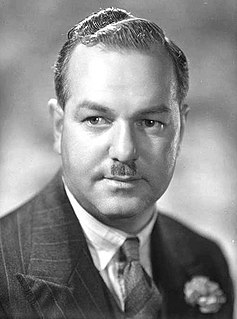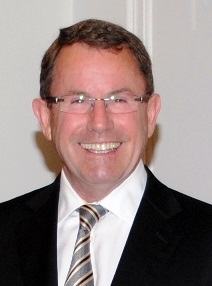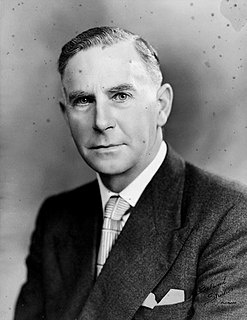 | |||||||||||||||||||||
| |||||||||||||||||||||
| Turnout | 30,944 | ||||||||||||||||||||
|---|---|---|---|---|---|---|---|---|---|---|---|---|---|---|---|---|---|---|---|---|---|
| |||||||||||||||||||||
| |||||||||||||||||||||
The 1957 Auckland City mayoral by-election was held to fill the vacant position of Mayor of Auckland. The polling was conducted using the standard first-past-the-post electoral method.
 | |||||||||||||||||||||
| |||||||||||||||||||||
| Turnout | 30,944 | ||||||||||||||||||||
|---|---|---|---|---|---|---|---|---|---|---|---|---|---|---|---|---|---|---|---|---|---|
| |||||||||||||||||||||
| |||||||||||||||||||||
The 1957 Auckland City mayoral by-election was held to fill the vacant position of Mayor of Auckland. The polling was conducted using the standard first-past-the-post electoral method.
The by-election was triggered by the death of sitting Mayor Thomas Ashby. Five candidates put their names forward for the contest, with Deputy-Mayor Keith Buttle elected the new Mayor. Councillor Dove-Myer Robinson's United Independents (who had backed Ashby a year earlier) ticket chose to neither contest the election nor endorse a candidate. [1]
The following table gives the election results:
| Party | Candidate | Votes | % | ±% | |
|---|---|---|---|---|---|
| Citizens & Ratepayers | Keith Buttle | 17,298 | 55.90 | ||
| Labour | John Stewart | 7,573 | 24.47 | -6.10 | |
| Independent | Horace Kirk | 4,906 | 15.85 | ||
| Independent | Pat Curran | 1,038 | 3.35 | ||
| Independent | Trevor Innes | 97 | 0.31 | ||
| Informal votes | 32 | 0.10 | -0.40 | ||
| Majority | 9,725 | 31.42 | |||
| Turnout | 30,944 | ||||

Sir Dove-Myer Robinson was Mayor of Auckland City from 1959 to 1965 and from 1968 to 1980, the longest tenure of any holder of the office. He was a colourful character and became affectionately known across New Zealand as "Robbie". He was one of several Jewish mayors of Auckland, although he rejected Judaism as a teenager and became a lifelong atheist. He has been described as a "slight, bespectacled man whose tiny stature was offset by a booming voice and massive ego".

John "Jock" Skinner Stewart was a New Zealand politician of the Labour Party.

Thomas William Mark Ashby was a New Zealand local body administrator and Mayor of Auckland City from 1956 to 1957.

Abraham Saul Goldsmith was an importer and merchant from Wellington, New Zealand. He was a foundation member of the National Party and was active at a local level. Goldsmith was also a noted chess player.

The 2007 Auckland City mayoral election was part of the New Zealand local elections held that same year. In 2007, elections were held for the Mayor of Auckland plus other local government positions including nineteen city councillors. The polling was conducted using the standard first-past-the-post electoral method.
The 1990 Auckland City mayoral by-election was held to fill the vacant position of Mayor of Auckland. The polling was conducted using the standard first-past-the-post electoral method.
The 1977 Auckland City mayoral election was part of the New Zealand local elections held that same year. In 1977, elections were held for the Mayor of Auckland plus other local government positions including twenty-one city councillors. The polling was conducted using the standard first-past-the-post electoral method.
The 1974 Auckland City mayoral election was part of the New Zealand local elections held that same year. In 1974, elections were held for the Mayor of Auckland plus other local government positions including twenty-one city councillors. The polling was conducted using the standard first-past-the-post electoral method.
The 1968 Auckland City mayoral election was part of the New Zealand local elections held that same year. In 1968, elections were held for the Mayor of Auckland plus other local government positions including twenty-one city councillors. The polling was conducted using the standard first-past-the-post electoral method.
The 1965 Auckland City mayoral election was part of the New Zealand local elections held that same year. In 1965, elections were held for the Mayor of Auckland plus other local government positions including twenty-one city councillors. The polling was conducted using the standard first-past-the-post electoral method.
The 1962 Auckland City mayoral election was part of the New Zealand local elections held that same year. In 1962, elections were held for the Mayor of Auckland plus other local government positions including twenty-one city councillors. The polling was conducted using the standard first-past-the-post electoral method.

The 1959 Auckland City mayoral election was part of the New Zealand local elections held that same year. In 1959, elections were held for the Mayor of Auckland plus other local government positions including twenty-one city councillors. The polling was conducted using the standard first-past-the-post electoral method.

The United Independents were a centrist oriented local body electoral ticket in Auckland, New Zealand. The group was formed in 1953 by combining a selection process for council candidates backed by several civic interest groups and lobby groups opposed to a proposed sewerage scheme. Its main ambition was to control the balance of power on the Auckland City Council and stop the sewerage scheme.

The 1956 Auckland City mayoral election was part of the New Zealand local elections held that same year. In 1956, elections were held for the Mayor of Auckland plus other local government positions including twenty-one city councillors. The polling was conducted using the standard first-past-the-post electoral method.

The 1953 Auckland City mayoral election was part of the New Zealand local elections held that same year. In 1953, elections were held for the Mayor of Auckland plus other local government positions including twenty-one city councillors. The polling was conducted using the standard first-past-the-post electoral method.

Eric Cameron Armishaw was a New Zealand local-body politician and boxing referee.

Hugh Drummond Lambie was a New Zealand politician and farmer. He is known as the father of Manukau City and having a record of generosity, courtesy, integrity and vision.

Frederick Henry Thomson de Malmanche was a politician and diplomat.
Sir Reginald Charles Frank Savory was a New Zealand businessman and politician who introduced container ship capability to Auckland.